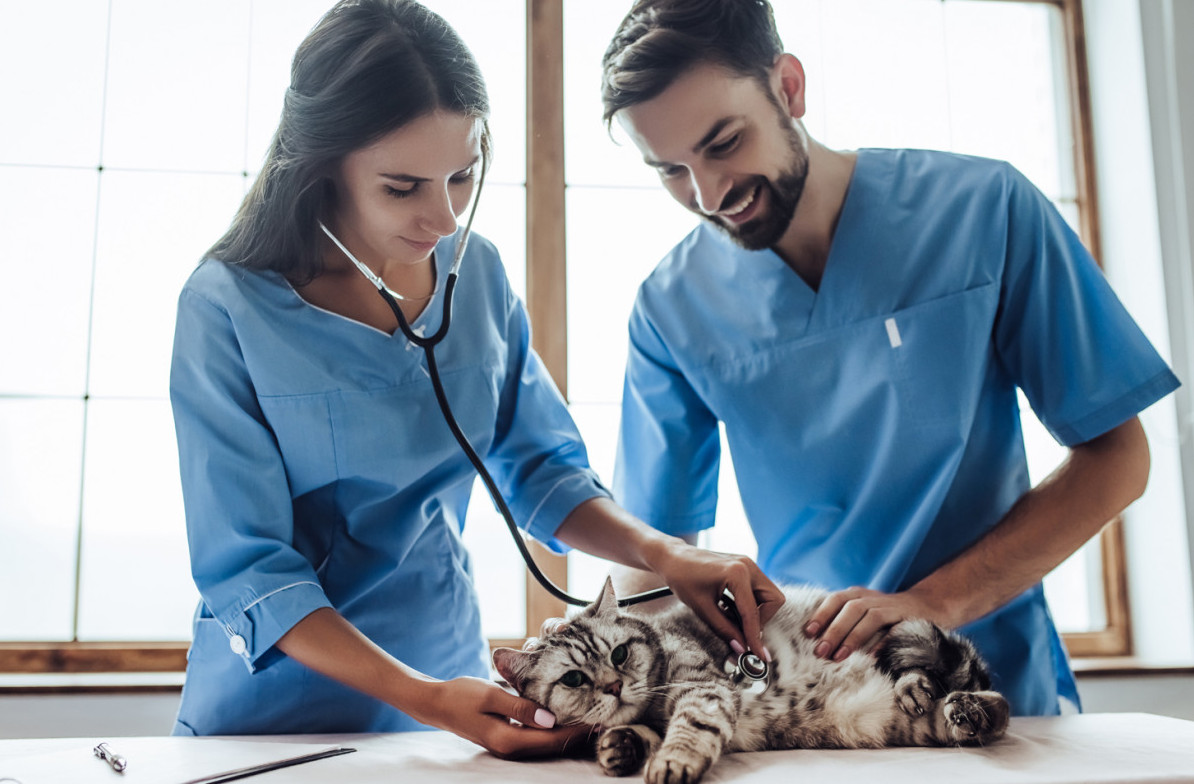Veterinarians specialize in farm animals or companion pets. They must graduate from an accredited school and have a DVM or Doctor of Veterinary Medicine. Licensure is required.
Work Experience
Some medical veterinary colleges take experience into consideration heavily during the admissions process. Previous work experience with scientists or veterinarians in clinics, research, agribusiness or some avenue of health science is vital. Working on a farm with animals, in an animal shelter or at a stable is also advantageous.
Veterinary program graduates can start practicing once they receive their license; some pursue further training and education. New vet graduates may enter residency or internship programs to garner experience.
Education & Training
Completion of a D.V.M. or V.M.D. Doctor of Veterinary Medicine is required. These programs are typically 4 years in length. There are clinical components, laboratory studies and classroom aspects to cover.
Most students apply to veterinary school with a bachelor's degree. Typically, applicants have taken a variety of science courses including: animal science, zoology, chemistry, microbiology, physiology, anatomy and physiology. The majority of programs require social science classes, humanities and math. Admission is extremely competitive and on average, less than half of the applicants are accepted.
Veterinary medicine programs enable students to study disease prevention, treatment and diagnosis. Classes include 3 years of classroom studies, clinical work and laboratory time. Typically, the last year of the 4 year program is spent completing clinical rotations in a hospital or veterinary medical center.
Licenses, Certifications, and Registrations
Licensing requirements vary from place to place. Graduates from an accredited veterinary program are eligible. The North American Veterinary Licensing Examination is one of the final tests. Individuals employed by the federal or local government may not need a license as every agency has their own requirements.
Many places have a local exam as well as a national exam. These exams cover regulations and laws. If a veterinarian wishes to practice in another location, they should be prepared to take the local exam in that place.
There are 40 specialties offered by the American Veterinary Medical Association including: internal medicine, microbiology and surgery. Even though certification is not required, it is a way to showcase expertise and skill in a certain field. Veterinarians may sit for a specialty exam after obtaining a certain amount of years of experience within that field. Additionally, they must finish a residency program often lasting 3 to4 years and complete extra courses.
Skills and Qualities that will Help
Compassion: It is necessary to be compassionate when working with animals and their owners. Animals and people must be treated with respect and kindness as well as be sensitive when working with animal owners.
Communication skills: Veterinarians require excellent communication skills. They must be able to explain treatment protocol and clearly discuss instructions to staff and owners.
Decision-making skills: The correct method for treating the illnesses of animals must be discussed. It can be difficult to decide to euthanize a sick or injured animal but is necessary at times.
Management skills: Management skills are vital for veterinarians who manage laboratories, private clinics or direct teams of inspectors or technicians. They are responsible in these settings for delegating work, offering direction and overseeing the day to day needs of the clinic such as ordering medicine and specialty foods.
Manual dexterity: Veterinarians must be precise when performing surgery and treating injuries.
Problem-solving skills: Determining what is ailing animals can be a complex investigation. Excellent diagnostic skills are required to determine the effects of drug therapies during the testing process.









